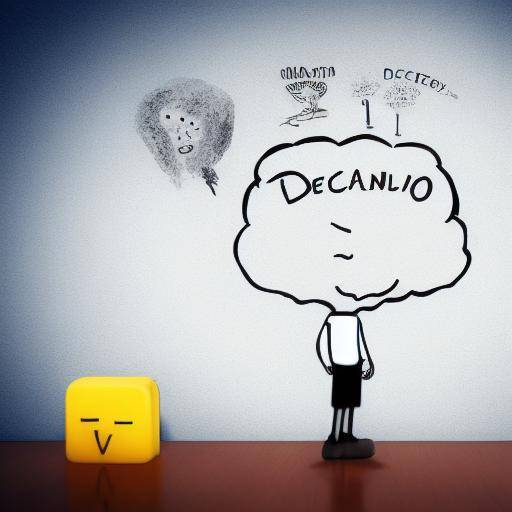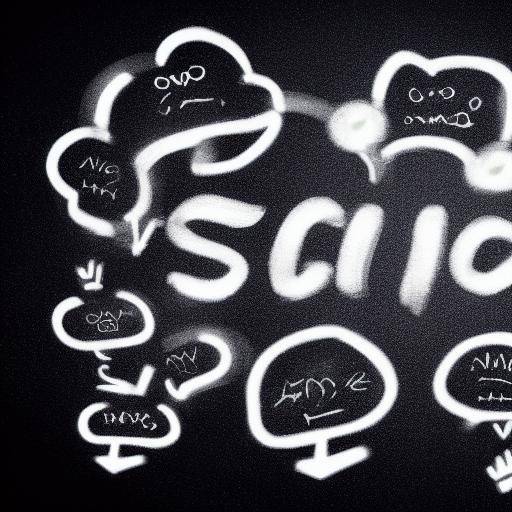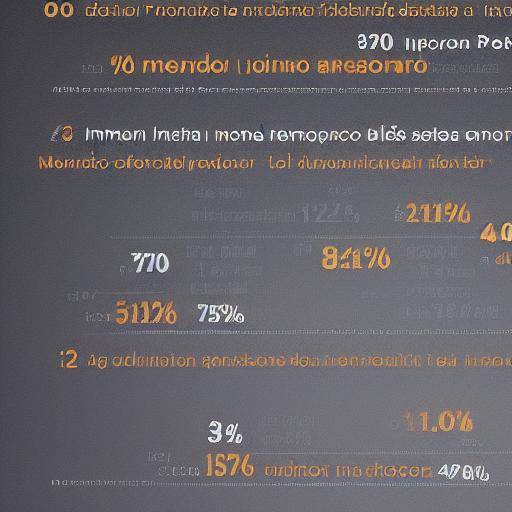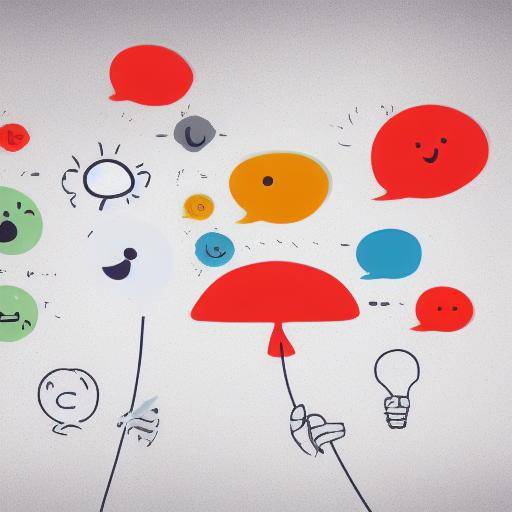
Introduction
In today's society, emotional intelligence is given great importance, understood as the ability to effectively identify, understand and manage one's own and other emotions. Within this context, the role of mentors in the development of emotional intelligence has gained relevance. In this article, we will explore in depth the importance of mentors in this field, analyzing their impact on emotional well-being and providing practical advice to make the most of this relationship in the integral development of people.
History and Background
The mentor-alumno relationship has existed throughout history, being conceptualized for the first time in ancient Greece, where Ulysses left his son to the care of his friend and counselor, Mentor, when he embarked on his journey. This concept has remained in force over the centuries, and its importance in personal development has been consolidated over time.
The term “emotional intelligence” was coined by psychologists Peter Salovey and John Mayer in the 1990s, gaining popularity with the publication of Daniel Goleman’s homonymous book. Since then, its influence on personal and professional success and emotional well-being has been widely studied.
Exploring the evolution of the mentor-student relationship and its link to emotional intelligence allows us to understand its importance in the integral development of people and its contribution to emotional well-being.
Analysis in Deep
The figure of the mentor plays a crucial role in the development of an individual's emotional intelligence. Through his experience and wisdom, the mentor not only provides guidance in the professional field, but also provides tools for personal growth. This support is fundamental for students to acquire key skills such as self-knowledge, emotional self-regulation, empathy and social skills, essential components of emotional intelligence.
The mentors, sharing their experiences and knowledge, become models to follow for their students, fostering the development of emotional intelligence in a practical and applied way. In addition, the relationship of trust and closeness between mentor and student contributes significantly to emotional well-being, creating an environment conducive to the integral development of the person.
Exhaustive examination
At present, numerous studies have been conducted that support the importance of mentors in the development of emotional intelligence. Research has shown that those individuals who have had mentors experience a greater degree of emotional well-being and a more successful performance both in the personal and professional spheres. These findings show the positive influence that mentors exert in the development of emotional intelligence and, consequently, in the general well-being of people.
It is important to emphasize that while mentors play a significant role in the development of emotional intelligence, there are also challenges associated with this relationship. The dynamic between mentor and student can be affected by generational, cultural or personality differences, which can influence the effectiveness of the transmission of emotional knowledge. It is essential to address these challenges to maximize the positive impact of the mentor-student relationship on the development of emotional intelligence.
Comparative analysis
By comparing the influence of mentors in the development of emotional intelligence with other forms of learning, it is clear that this relationship offers unique benefits. Unlike other teaching methods, mentoring and mentoring of a mentor specifically addresses the emotional and cognitive needs of the student, promoting comprehensive growth that directly impacts emotional well-being. This distinction makes the figure of the mentor a fundamental pillar in the process of developing emotional intelligence.
Practical Tips and Accessible Tips
Considering the relevance of mentors in the development of emotional intelligence, it is crucial to make the most of this relationship. Some practical tips include:
- Set clear goals: Both the mentor and the student must define specific goals related to the development of emotional intelligence, which allows a concrete path to emotional growth.
- Promoting open communication: Maintaining open and open communication with the mentor is essential to receiving constructive feedback and effective guidance in managing emotions.
- Find learning opportunities: Identify everyday situations that provide opportunities to practice and strengthen emotional skills, with mentor support and guidance.
- Cultivate empathy: The mentor can guide the student in developing empathy and emotional understanding, thus fostering his emotional intelligence.
Perceptions of Industry and Expert Reviews
The importance of mentors in the development of emotional intelligence is not only recognized by the academic community, but is also supported by leaders in different fields. Experts in psychology, education and personal development highlight the positive influence of mentors on emotional well-being and building a solid emotional intelligence. Their opinions and contributions enrich our understanding of the relevance of this relationship for personal growth.
Case Studies and Real Life Applications
Examining real cases where the mentor-alumno relationship has significantly impacted the development of emotional intelligence allows us to visualize the tangible benefits of this dynamic. From educational environments to businesses and institutions, success cases show how mentoring can transform people's lives, boosting their emotional intelligence and overall well-being.
Future Trends and Predictions
As the field of emotional intelligence continues to expand, the figure of the mentor is expected to become even more relevant in the development of these skills. Current trends are aimed at further integration of mentor programs in educational and labour fields, recognizing the positive impact that this relationship has on the emotional well-being and integral growth of people.
Conclusions
In conclusion, the importance of mentors in the development of emotional intelligence is undeniable. From its historical root to its contemporary impact, the mentor-alumno relationship continues to play a key role in promoting emotional intelligence and overall well-being. Taking advantage of this connection effectively offers significant opportunities for personal and professional growth, driving the acquisition of key emotional skills.
Frequently asked questions
Why is the figure of the mentor important in the development of emotional intelligence?
The mentor plays a key role in providing personalized guidance, sharing relevant experiences and providing tools for the development of emotional intelligence, contributing to emotional well-being and comprehensive growth.
How can I find a mentor to strengthen my emotional intelligence?
Finding educational institutions, mentoring programs or professional communities can be an effective way of finding an appropriate mentor. It is also recommended to look for personal or professional references to identify potential mentors.
What benefits does the mentor-alumno relationship offer in the field of emotional intelligence?
The mentor-alumno relationship facilitates the development of key emotional skills, such as empathy, emotional self-regulation and effective management of emotional situations, which contributes directly to emotional well-being and personal and professional success.
How can a mentor help in developing emotional intelligence in working environments?
In working environments, mentors can guide employees in managing emotional situations, provide constructive feedback and promote a healthy and empathic working environment, thereby strengthening emotional intelligence in the workplace.
What are the key qualities I should look for in a mentor for the development of emotional intelligence?
Looking for a mentor, it is essential to look for qualities such as empathy, emotional development experience, effective communication skills and ability to provide constructive guidance and feedback.
Is the relationship of mentoring in the development of emotional intelligence exclusive of educational environments?
No, the mentoring relationship in the development of emotional intelligence extends to various fields, including work, community and personal environments, where the orientation and the personalized guide contribute to emotional growth and general well-being.
In short, the presence of mentors on the path to the development of emotional intelligence is invaluable. This relationship not only drives personal and professional growth, but also fosters emotional well-being. By understanding and taking advantage of the essential role of mentors in strengthening emotional intelligence, people can achieve their maximum emotional potential and live more full and fulfilling lives.






















































